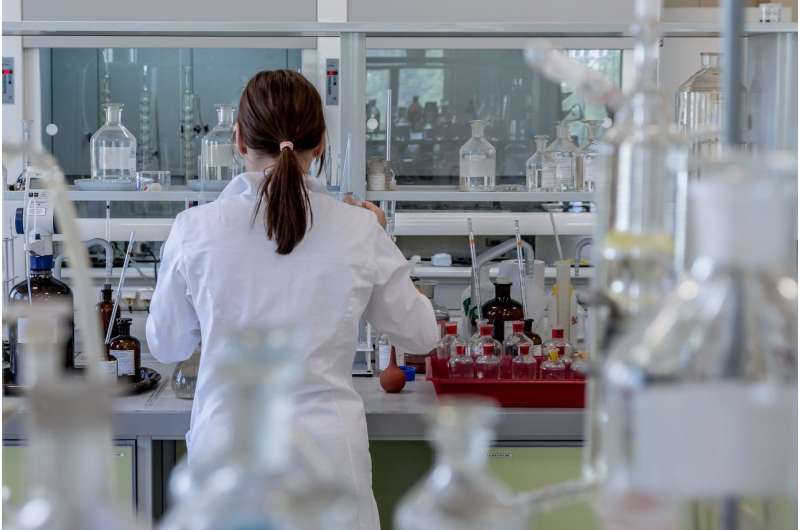This article has been reviewed according to Science X's editorial process and policies. Editors have highlighted the following attributes while ensuring the content's credibility:
fact-checked
peer-reviewed publication
trusted source
proofread
Magic mushrooms can treat medication-resistant depression—but are they safe?

New research suggests psilocybin has similar side effects to traditional antidepressants. Commonly referred to as "magic mushrooms," psilocybin is a promising alternative treatment for people with medication-resistant depression and anxiety.
Previous studies have suggested that the psychedelic fungi can have positive effects for patients suffering from some mental illnesses, but one question remains: Is psilocybin actually a safe alternative to traditional medications?
A new meta-analysis from researchers at the University of Georgia suggests it may be.
Published by JAMA Network Open, the study found that when given as a therapeutic single-dose, psilocybin has similar side effects to traditional antidepressant medications. These side effects included headache, nausea, anxiety, dizziness, and elevated blood pressure.
But these side effects were generally well tolerated by participants and faded within 24 to 48 hours.
"The acute side effects are what we may expect from your traditional antidepressants because those medications work in a similar fashion to psilocybin. They both target serotonin receptors," said Joshua Caballero, corresponding senior author of the paper and an associate professor in UGA's College of Pharmacy.
"It's very encouraging because the studies we examined consist of just one or two doses per patient, and we're finding that the beneficial effects of psilocybin may stay for months when treating depression."
Long-term side effects of psilocybin still unknown
Psilocybin is designated a Schedule 1 drug by U.S. federal law because of its hallucinogenic properties. Drugs in this classification also typically have a high potential for abuse.
However, psilocybin mushrooms and other hallucinogens have been used for generations by indigenous cultures in religious or spiritual rituals. And as early as the 1950s and 1960s, researchers began examining its possible medical applications in treating substance use disorders and mental illness, according to the National Institutes of Health.
Beginning in 2019, some states have begun decriminalizing the psychedelic drug, making it possible for more research to be conducted on its possible medicinal value.
Until the present study, though, most psilocybin research focused on efficacy.
"At some point, I do think that psilocybin will become a treatment option, and when it does, we need to know what the side effects and potential long-term complications are," Caballero said. "I would urge caution for people that are thinking this is a magic cure and then go out and take excess mushrooms. Without proper monitoring, you won't know the concentration of psilocybin in those mushrooms and you could have a bad trip or other negative outcome."
The use of psilocybin requires professional supervision for safety
The meta-analysis included multiple studies, comprising 528 participants.
The included studies took place under close supervision with trained therapists and health care providers who walked patients through the process and kept them calm throughout the treatment.
Caballero emphasized that professional supervision is key when dealing with potentially dangerous substances.
"There is still a lot we don't know about the potential long-term side effects and more serious rare side effects of psilocybin use," Caballero said.
For example, antidepressants have a black box warning from the FDA about the potential of increasing risk of suicidal thoughts and suicide in young adults. Most psilocybin research has been conducted in adults in the 30s and 40s. So it's unclear whether psilocybin could have a similar effect on adults under 26.
"Hopefully, this paper can help experts know to monitor for these acute five side effects that are very common and make them aware of possible others," Caballero said. "But if we can safely use this drug in a controlled environment, I think it could be groundbreaking for a lot of patients that need it."
More information: Akhila Yerubandi et al, Acute Adverse Effects of Therapeutic Doses of Psilocybin, JAMA Network Open (2024). DOI: 10.1001/jamanetworkopen.2024.5960




















